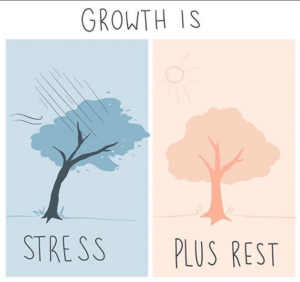Supporting your Daughter through Exams and Assessments

A couple of years ago, I had the pleasure of attending the Alliance of Girls’ Schools Summit and hear Dr Lisa Damour speak about the impact of stress and anxiety on girls.
Dr Damour is a clinical psychologist in America who has spoken extensively about the challenges facing adolescent girls today. Her talk, ‘Turning a global crisis into fuel for girls,’ provided insight into the rising rates of stress and anxiety, and how to reframe the conversation we have with young girls experiencing these emotions.
With exams and final assessments on the horizon for our Middle Years students, I wanted to share with you some of Dr Damour’s perspectives in the hope it may assist you with supporting your daughter across the upcoming assessment period.
Anxiety versus Stress
 It may well be that your daughter experiences some level of anxiety or stress as she prepares for an important assessment task. This might be seen in a wide variety of behaviours, including mood swings, withdrawal, avoidance, elevated heart rate, unable to rest or sleep, or even tears. The labels of ‘stress’ and ‘anxiety’ are often used interchangeably, making it difficult to know how best to manage the symptoms.
It may well be that your daughter experiences some level of anxiety or stress as she prepares for an important assessment task. This might be seen in a wide variety of behaviours, including mood swings, withdrawal, avoidance, elevated heart rate, unable to rest or sleep, or even tears. The labels of ‘stress’ and ‘anxiety’ are often used interchangeably, making it difficult to know how best to manage the symptoms.
Anxiety, like stress, is a normal and healthy emotion. It is our personal alarm that rings when something is not right. Anxiety is doing its job when your daughter has not prepared for an examination, and she feels anxious. Unhealthy forms of anxiety can be seen when symptoms occur for no reason, and/or, the response is out of proportion for the given trigger. For example, a panic attack at the time of an exam is a response that is out of proportion. When experiencing irrational anxiety, we tend to overestimate the threat and underestimate our ability to manage it.
Stress is a slightly different phenomenon. It occurs any time we have to adapt to a new situation. This can include both positive and negative changes in our lives. For all students, sitting a test and being asked to answer questions they have never seen before is a perfect example of a stressful situation, but that does not make the test itself a negative experience.
The message I hope to give students is that stress should be accepted and embraced, because without it, we would never experience anything new, and would never grow. Unhealthy levels of stress can occur, and being able to identify the difference is important. People who have experienced trauma or have experienced long periods of stress without a break, are likely to be experiencing a chronic form of stress and need to seek professional support.
Therefore, it is important to acknowledge that both stress and anxiety are healthy emotions, in the right proportions. When we talk to young people about healthy levels of stress, we must try not to ‘demonise’ it, and create ‘stress about being stressed.’
People who harbour the idea that stress is negative often have a stressful reaction to their stress. Stress in fact has many physiological benefits that can help to enhance one’s performance in a particular activity. For example, small amounts of stress can sharpen your focus. Stress also acts as a natural motivator. Research shows that when we talk about the positive effects of stress, this in fact reduces stress.
Stress + Rest = Growth
For stress to be growth-giving, stress must be accompanied by periods of rest, reflection, and recovery. Much like weightlifting and strength training, students need to work to the point of being uncomfortable. This should be the exciting part of learning! But then, rest is required.
Rest time should be built into any good study routine, and it should not be postponed until all the work is done. Rest time when used in conjunction with study should be seen as a ‘restoration interval.’ It is not the same as ‘down time,’ ‘lazy time’ or ‘free time.’
Strategies for recovery are highly personal, but whatever it involves, this time must be used as a circuit breaker from their studies. For example, a good activity for breaking this cycle is to connect with family and friends. Invite your daughter out of her room for a cup of tea. Go for a walk. Encourage her to go out to the garden, drive somewhere familiar, or even just to have a shower. Students should not feel guilty for taking this time as it will undermine their ability to gain restoration. This is the time to gain capacity and allow for the growth to occur.
Procrastination
Can rest be overdone? Absolutely!
Students find it challenging measuring time and predicting how long activities will take to complete. A task which we might think will take 10 minutes to complete, in a student’s mind, may seem completely insurmountable, and thus they will do just about anything to avoid starting. Setting a timer for 15 minutes, something akin to the Pomodoro Method for studying, can be very useful when supporting your daughter to get, or stay, on task.
Setting a schedule
Establishing a routine is crucial. Students need to schedule just about everything from sleeping and eating, to studying and exercising. This approach is essential for effectively managing the unavoidable pressures of exams. It is vital for students to include self-care in this schedule, particularly during demanding times.
Studies have demonstrated that regular exercise significantly benefits mental health and brain function. Similarly, a nutritious diet is essential for maintaining focus and tackling challenges head-on. Factor in some breaks for your daughter with nutritious food and plenty of water.
More Information
Dr Damour provides practical tools and strategies for teachers and parents to use when working with young girls to assist with helping them to become resilient and empowered adults.
Her book, Under Pressure, addresses the issues facing young girls in more detail, and I highly recommend it to anyone working with young women today.
SchoolTV also has an article related to supporting parents and students through this assessment period Exam Jitters | St Catherine’s School – Toorak (schooltv.me)
Additional resources compiled by SchoolTV can be found here: Resources | St Catherine’s School – Toorak (schooltv.me)



